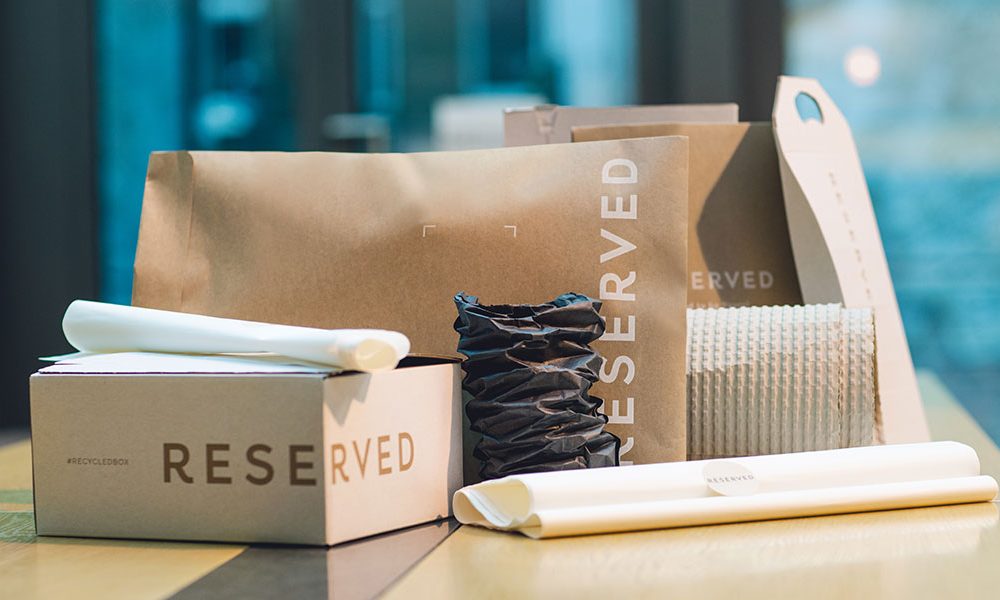
Packaging
We have made major changes to reduce the amount of packaging waste generated in the process of garment packing, repacking, and shipment.
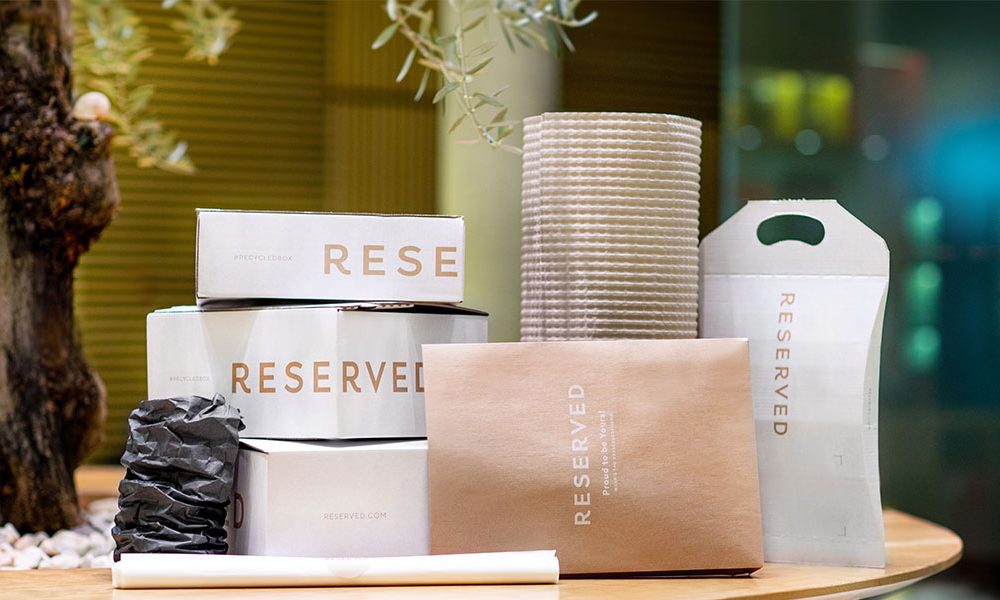
Since 2017, we have been gradually changing our packaging policy, eliminating single-use plastics and replacing them with cardboard or recycled paper or reusable or recyclable plastics.
All these measures have enabled us to reduce the use of single-use plastics since 2017.
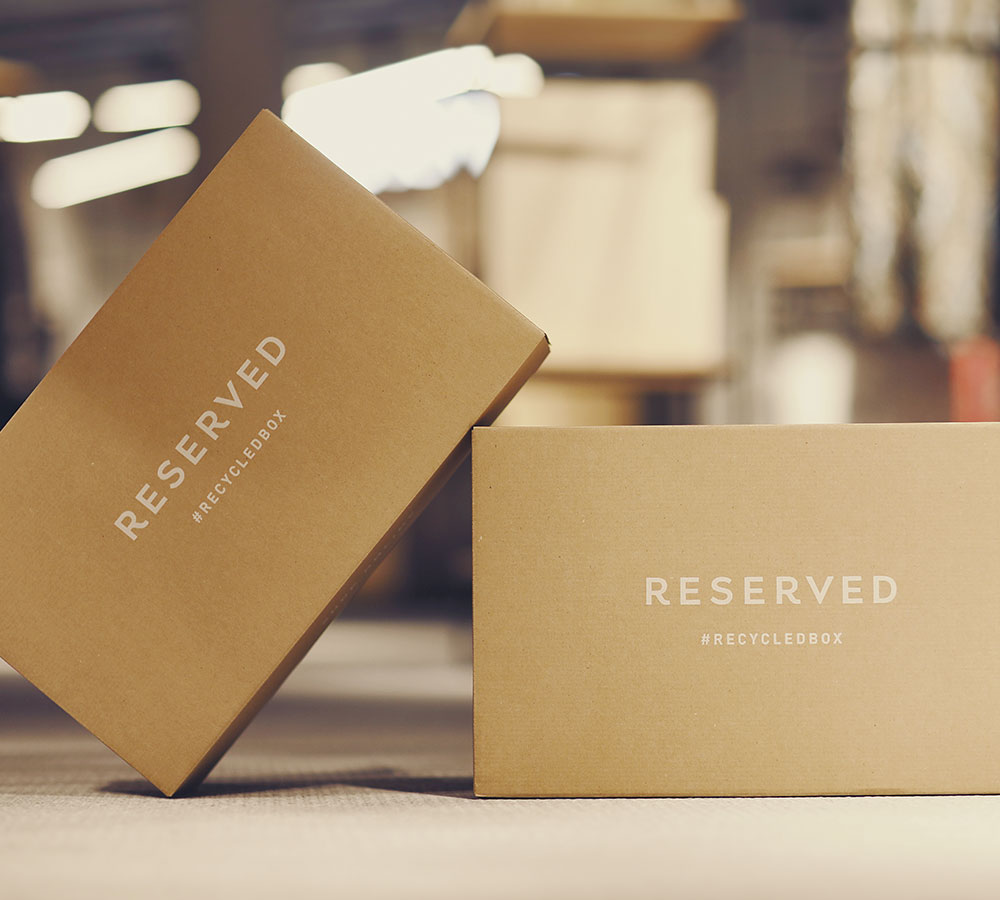
100% packaging free of single-use plastic
In recent years, we have eliminated single-use plastic from the packaging in which we deliver online orders to our customers.
We have replaced foil wraps with boxes produced from recycled cardboard and envelopes made from recycled paper.
We have replaced plastic air bags and bubble wrap traditionally used to secure the contents of a parcel with paper fillers made from recycled waste paper.
We are also successively reducing the amount of raw material used for packaging. Their size is now adapted to the contents of the parcel.
All envelopes in which e-commerce orders reach our customers are made of paper.
Cardboard boxes in the shipment to the customer are sealed exclusively with paper tape with water-activated starch glue.
We have eliminated foil from the price tags of our products and replaced the plastic strands that attach the tag to the garment with beeswax-protected string.
We are also successively reducing the amount of raw material used for packaging. Their size is now adapted to the contents of the parcel. Optimising pack sizes in practice also means better space utilisation for courier companies and a reduction in the number of journeys to customers. This indirectly reduces our carbon footprint.
Our collaborations
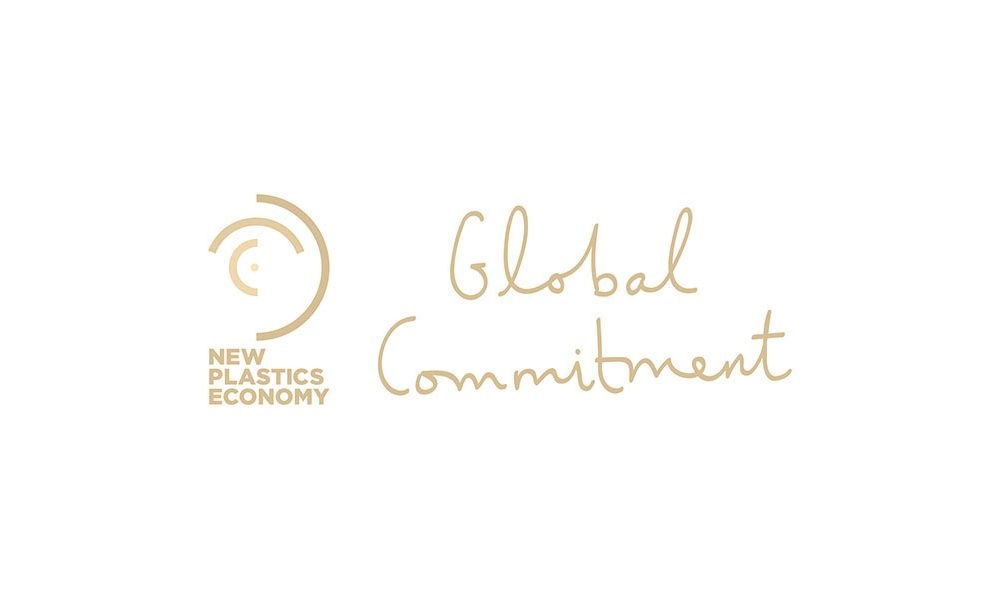
New Plastics Economy Global Commitment
From 2019, we are part of the New Plastics Economy Global Commitment, a global initiative set up by the Ellen MacArthur Foundation in partnership with the United Nations. The agreement brings together over 400 business and government representatives who are working to eliminate plastic waste and pollution.
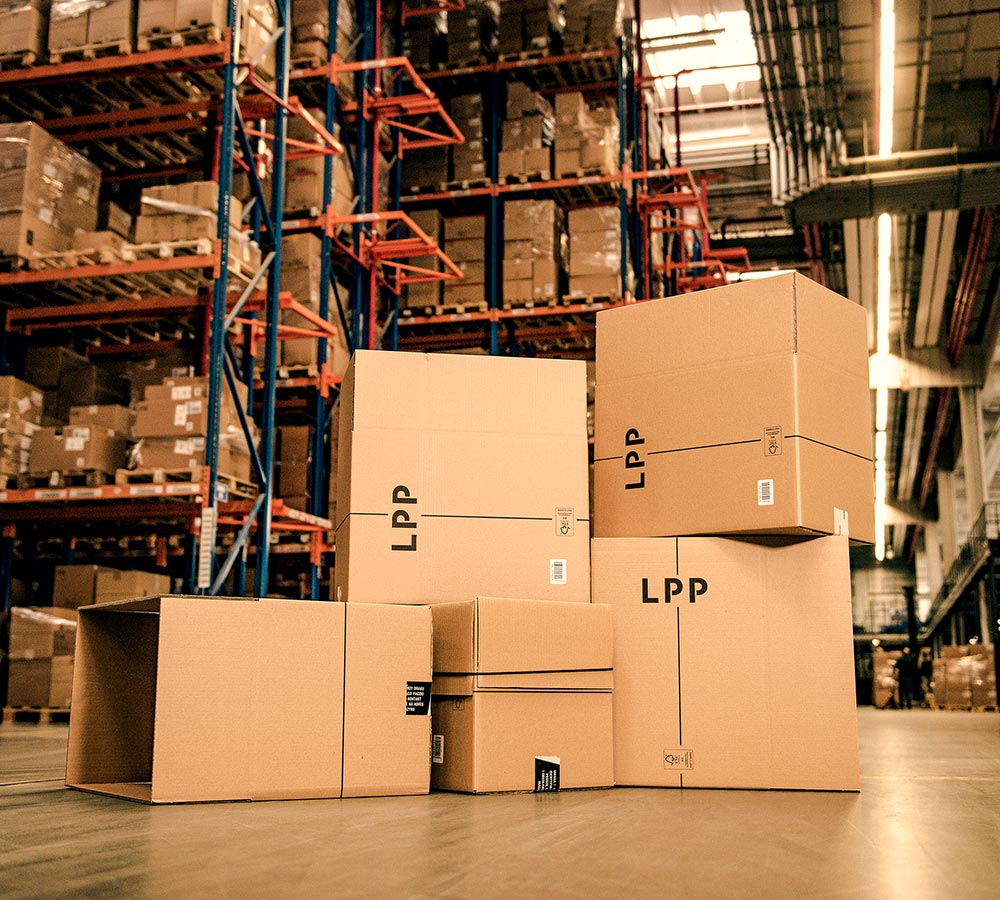
Polybag innovations
We are increasingly closing the foil circuit. During sea transport to the warehouses, our clothes travel thousands of kilometres. To protect them from moisture and damage, the items are packed in separate plastic bags, which in the industry are called polybags.
Since 2023, all new orders have been arriving in bags made from 100% recycled polyethylene (rLDPE). The polybags from LPP’s warehouses and head office – along with other collected foil – go to a recycler and are eventually made into waste bags.
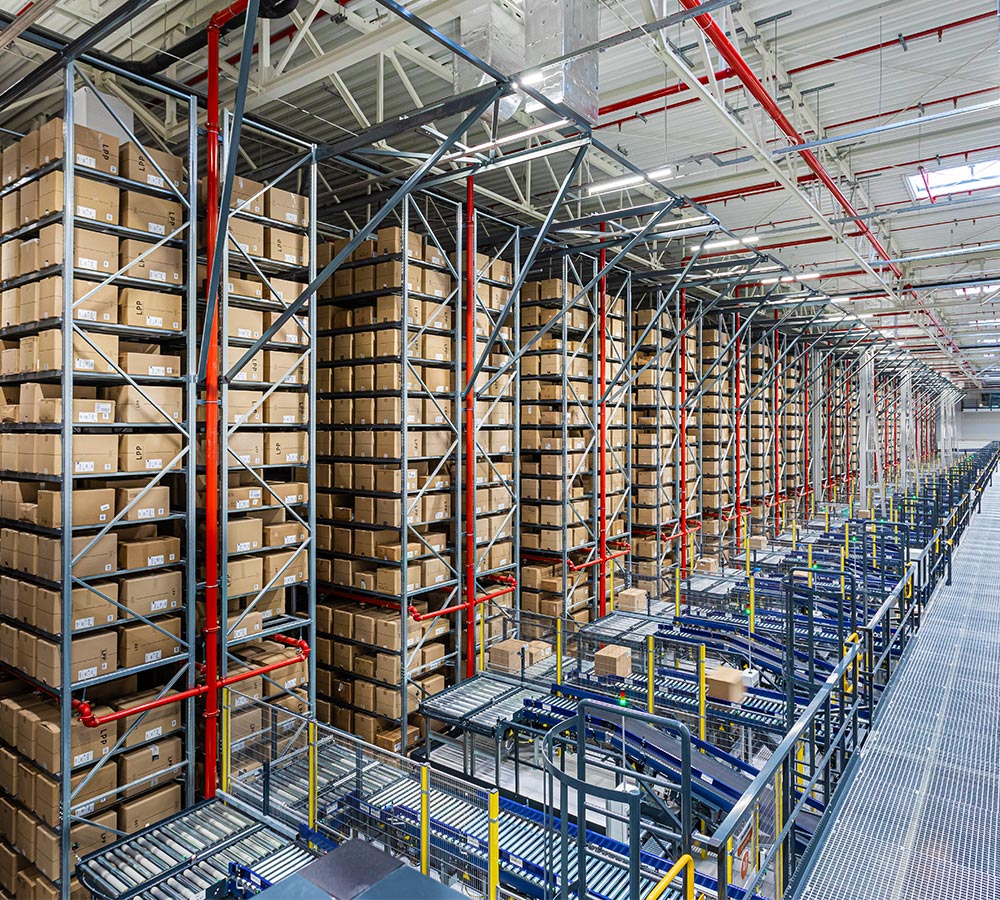
Standardisation of bulk packaging
As part of the Control Tower project, a platform for improving supply chain management, we implemented a process to standardise and strengthen cardboard boxes, thus reducing packaging consumption, reusing them and optimising packaging of goods.
In 2023, we reused 2,517,819 cartons.
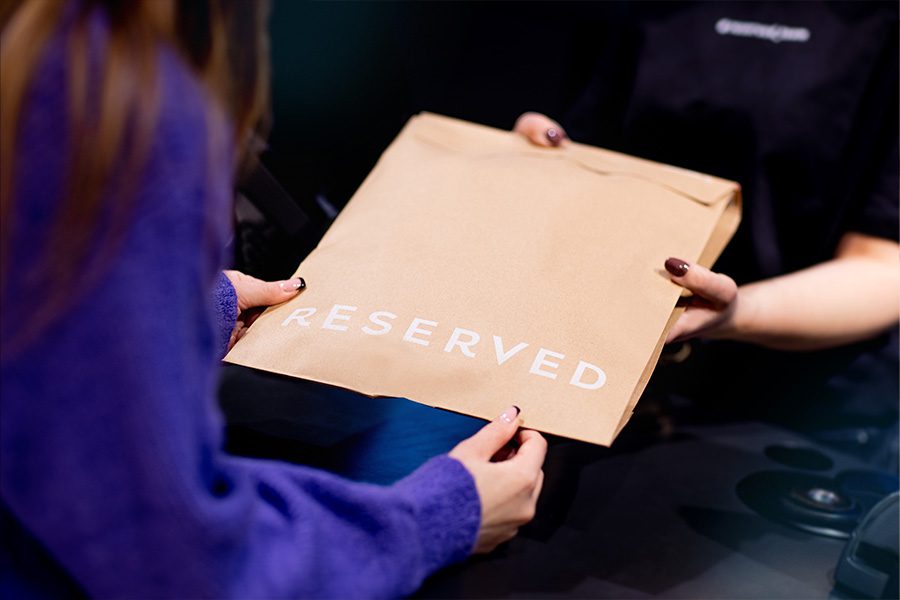
Eco-design of packaging
In 2023, we introduced an internal manual for the design of product packaging, through which we reduce the number of packaging items and think about the entire life cycle of the product, right from the creation stage.
According to its guidelines, all our packaging should be of a single-material, made from recycled and recyclable materials, and include appropriate labelling indicating which waste collection fraction it should go into. The manual also contains information about the recommended and non-recommended materials for packaging production, as well as a list of substitutes.
Wherever possible, we completely refrain from using packaging.
Discover our reports
Here you will find our latest report and all previous ones. Check LPP's progress, learn about detailed environmental, social and business results.



